KUL PAKISTAN ANJUMAN PUNJABI SAUDAGRAN was registered in 1957 and its office located at Shahra-e-Faisal Ibraheem state building, near old duty free shop, karachi, Pakistan.
The founder members of KPAPS was Sheikh Mohammad Tufiq Sahab, Sheikh Riaz Ahmed Sahab,Sheikh Arshad Ahmed sahab(merath wale), Sheikh Muhammad Sidique sahib soleja,Sheikh Muhammad Yousuf Sahab Shamsi, Sheikh Ayub Shahid Sahab, Sheikh Muhammad Laiq Sahab, Justice Tanzil ur Rehman Sahib, Sheikh Haji Noor-ul-Hassan Sahab, Sheikh Azizudin Sahab(Ba.llb), Sheikh Muhammad Husain Sahab(Aghra Wale), Sheikh Hafiz Ishtiyaq Sahab , Sheikh Muhammad Aqil Farooqi sahib, Sheikh Ehtisham Ahmed Sahab, Sheikh M.M.Ahmed Sahab.
KPAPS is providing financial assistance, health and education facilities, residence, and character-building programs, event management and grooming social activities for the people of metropolitan city Karachi. The foundation of the organization is based upon the President, Vice President, and Honorary General Secretary, a Joint Secretary and treasurer the total number of board members are 21.
The management publishes a Monthly Gazette, Anjuman Qaumi Gazette, which is widely circulated to the members. KPAPS also provides the facility of monthly pension to the deserving people of community without discrimination of cast, creed and religion. KPAPS also provide houses and daily household material to widows, orphans and the most marginalized people of the community.
The KPAPS brings together human, financial and technical resources to address some of the challenges faced by the most marginalized communities in Karachi, Pakistan. KPAPS emphasis on investing in developing human potential, expanding opportunity and improving the overall quality of life, especially for children and senior citizen. Our focused areas are: Housing; Economic Inclusion; Education; Early Childhood Development; Health and Nutrition; and Civil Society.
The KAPS has been formed to ensure provision of education from primary to highest level, medication, maintenance of Masajid and graveyards and help to the downtrodden section of the community. We dream to provide everyone access to their own choice of education, proper medical assistance and a job to provide for their families. Many individuals& organizations are vigorously working with KPAPS to achieve this dream.
The details of organizations/Institutions, which have been formed by the Kul Pakistan Anjuman Punjabi Saudagran, are below:
Shamsi health foundation, Shamsi Educational Foundation, Shamsi Society School, Shamsi model school, Shamsi Hospital, Shamsi Masjid trust, and KPAPS also have their own graveyards for the Biradri known as Bagh e Haji Muslim.
Upon formulation of these organizations, the KAPS has made its own separate governing bodies and registered them independently with concerned government authorities.
Shamsi society is one of the best housing project in Karachi, Pakistan.It was started from the platform of Kul Pakistan Anjuman Punjabi saudagran and now its become a well stablished and populated community residential area in Karachi, Pakistan
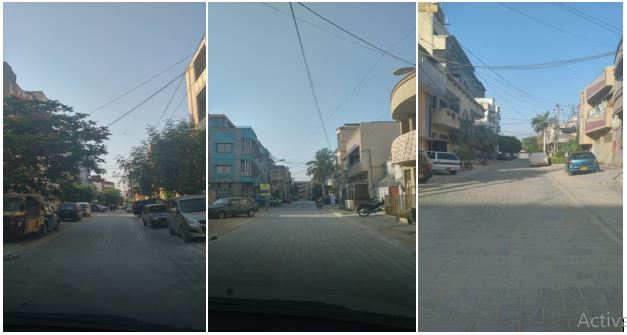
Shamsi Society is spread over the area of 261,360 Square Yards. It consists of 600 residential and commercial plots. It includes the facility of 2 large Masajid, School, Hospital and Parks. Approx 10,000 people are living in the society, where 98% of them directly belong to the PUNJABI SAUDAGRAN community. Majority of the residents belong to the business community and the mainstreamof them are doing their own businesses.
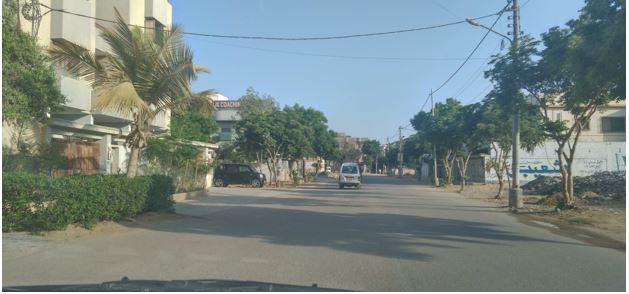
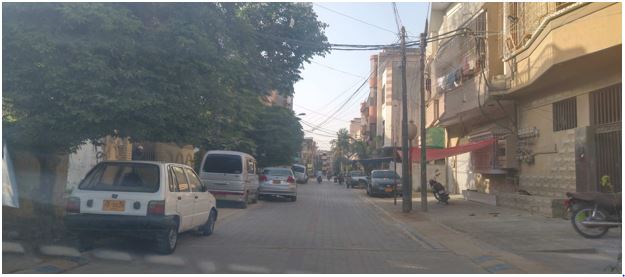
Anjuman Apartment is located in Shamsi Society,Malir Halt,Karachi. It was built by Kul Pakistan Anjuman Punjabi Saudagranin 1990; the area of AnjumanApartments is spread over 29,997 square feets. It has been constituted with seven towers and each tower has 10 flats and total numbers of flats are seventy. Anjuman Apartments has been provided in the very easy installment so everyone can fulfill the need of shelter.
A Mosque is a place where Muslims are required to perform five daily prayers. According to Holy Prophet (P.B.U.H) a man who makes a Mosque Allah makes a home for him in the heaven. The KPAPS formed and constructed two mosques with the capacity of more than 1000 peoples each.
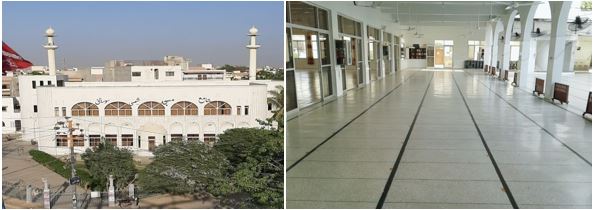
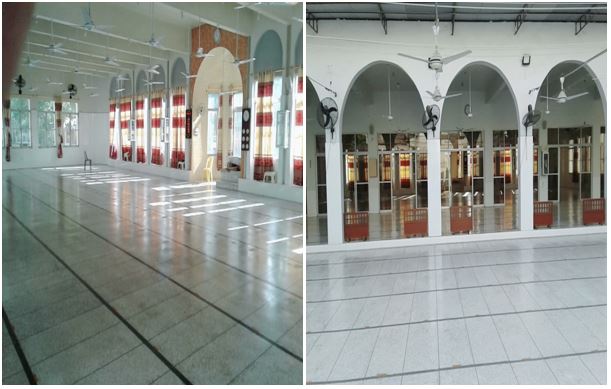
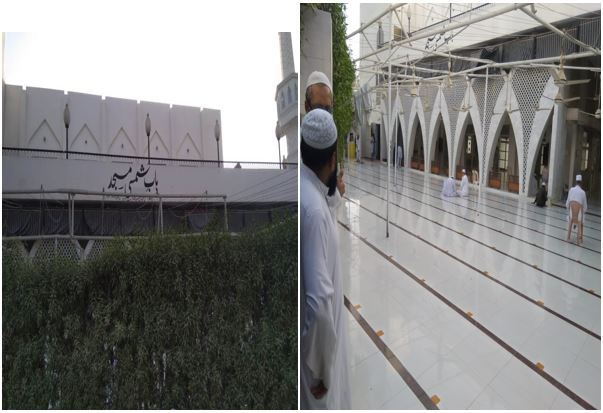
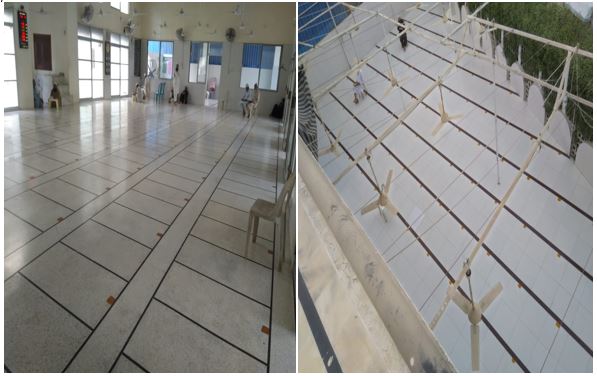

The SHAMSI EDUCATIONAL FOUNDATION was established in 1990 and started first 10 rooms school with the name of SHAMSI SCHOOL in Shamsi Co-Op Housing Society under the auspices of Shamsi Educational Foundation which has now became the largest purposely built and most affordable school in the vicinity of Malir, Karach, Pakistan. The purpose of Shamsi School is to provide high quality education to students. There are two campuses of Shamsi School and today, both campuses of Shamsi Schools are providing financially subsidized and to provide quality education that follows the Pakistani curriculum, to boys and girls from religiously diverse, multi lingual and multi ethnic backgrounds in most densely populated areas of Karachi.
Each campus of SHAMSI SCHOOL is fully equipped with modern facilities including audio visual for affective teaching in all classrooms, computer and science labs and rich library with stock of more than 10,000 books to ensure that students are provided with a nurturing environment that will help them achieve their maximum academic and potential. The mission of Shamsi School is to ensure that each student achieves optimal academic and personal potential. After all the years of hard work Shamsi School has won seven International School Award 2019-2022 and has entered the top level of accreditation of the British Council Pakistan after a rigorous assessment.
www.shamsischool.edu.pk


SHAMSI HOSPITAL is a not-for-profit organization established to provide State-of-the-Art modern medical and surgical facilities for affording and non-affording patients. The hospital is located in Shamsi Cooperative Housing Society, Malir, Karachi. All founder members of PUNJABI SAUDAGARAN Community used their personal efforts to build this hospital with the intention to provide quality health services to all.
SHAMSI HOSPITAL offers an extensive range of inpatient and outpatient care through advanced equipment and a team of highly skilled, qualified and dedicated people who share its mission and values. SHAMSI HOSPITAL is successfully heading in providing services of curative, restorative and preventive character of the highest quality caring to all segments of society regardless of race, caste, creed, color and economic status. The beneficiaries do not only include the local population of Karachi but the comprehensive health care facilities imbibe all sort of patients from Interiors Sindh, and other provinces of Pakistan.
The services rendered in Shamsi hospital are Dialysis, Physiotherapy, Intensive Care Unit, Gynecology & Obstetrics, Dentistry, Paediatrics and much more.
www.shamsihospital.org.pk
The KPAPS also provides various financial services for the improvement of our society members. These services include empowering youth through education by establishing schools, colleges and various institutions and providing education to boys and girls. KPAPS provides Masjid and madarsas services by looking after and taking care of the Masajiden trusted to the Anjuman. They grant scholarship to the meritorious, needy and underprivileged students those are willing to obtain higher education. KPAPS also administrates and manages Bagh e Muslim Graveyard and provides maintenance. KPAPS helps poor and needy people by providing monthly expenses to them. Moreover they arrange expenses of marriages of deprived girls by providing cash and other necessary house hold.
The Vision of KUL PAKISTAN ANJUMAN PUNJABI SAUDAGRAN is to improve the Life Standard of Community Members by providing the advance Resources that they need, be it through financial assistance, information, opportunities or access.
Qaum-e-Punjabian/ Punjabi saudagran were working from the very longest time for the betterment of people before the establishment of their community. After migration from sarghoda in 17th century the Community needed a platform to come together and stay close-knit. This platform was also envisioned as one that could be used to assist the less and underprivileged of the Community in specific and everyone in general and provide them with a better living standard. From the beginning they wanted a separate community so they can address the challenges faced by poor and needy. After many years of struggle a community had been formed as an organization in 1906.
The first legally constituted registered organization of QaumPunjabian/ Punjabi Saudagaran community established in 1906 named ANJUMAN-I-WAKIL QAUM PUNJABIAN.
Registered Address :
Anjuman -I- Wakil QoumPunjabian ( Regd. )
1333, Haveli Hisamuddin, Ballimaran,
Delhi – 110006Phone :+91-11-23958725; 23976723 web: www.anjumanpunjabian.org
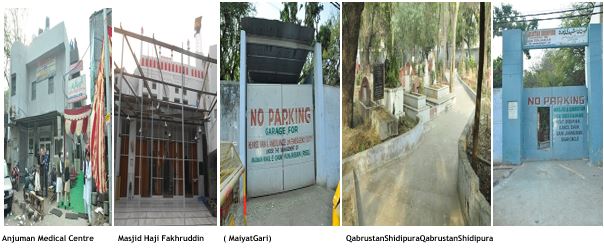
The organization had been formed to ensure the provision of Education from primary to highest level, Medication, Maintenance of Mosques and Graveyards and help to the downtrodden section of Punjabi Saudagaran community. The Anjuman -I- Wakil QaumPunjabian fosters a spirit of tolerance for all religious, sects and castes, Communal harmony, social responsibility and cosmopolitanism through its educational Institutions.
The Qaum-e-Punjabian/ Punjabi saudagran sometimes referred to as Shamsi, Delhi Wala , Aldehlawi, or simply Shamsi Biradari is a community of Muslims that historically came from Sargodha in Punjab and then settled in a number of other cities like towns in western Uttar Pradesh, such as Agra,Aligarh, Meerut, Moradabad, Bareilly, Rampur, Kanpur, Nainital and Haldwani. After the partition of India, and subsequent independence of Pakistan in 1947, many members of the community migrated to Pakistan, particularly Karachi and Lahore, while few chose to migrate to Mecca and Medina. They were traders and merchants as traders means Saudagar in Persian and Urdu.
Qaum-e-Punjabian is a community of Punjabi Muslims that historically came from Sargodha, Punjab and then lived in Old Delhi, Kolkata (formerly Calcutta), West Bengal; and towns in western Uttar Pradesh, such as Agra, Aligarh, Meerut, Bareilly, Rampur, Kanpur, Moradabad, Roorkee including areas within western Uttar Pradesh that now fall in state of Uttarakhand; namely Nainital and Haldwani. After the partition of India, and subsequent independence of Pakistan in 1947, many members of the community migrated to Pakistan.
According to tradition, the clan belonged to the Muslim Khatris community, some of whom were converted to Islam by Hazrat Shamsuddin Sabzwari. Some subgroups used the surname Shamsi (a disciple of Shams), in his honor. Some families moved from Sargodha, in what is now Pakistan. In the 17th century, in search of business opportunities to Uttar Pradesh and especially in Delhi on behalf of the Mughal Emperor AurangzaibAlamgir. Other than in Delhi, important Qaum-e-Punjabian communities exist in Aligarh, Agra, Roorkee, Aonla, Hapur, Moradabad, Rampur, Kanpur ,west Bengal and Kolkata. .
The Qaum-e-Punjabian used Shaikh, Saudagar,dehli wale, Soleja or Shamsi as their surname and wala as their business name. They are an endogamous community, practicing both cross cousin and parallel-cousin marriages. .
Historically, the Qaum-e-Punjabian played an important role in India's trans-regional trade. They are noted to be amongst the "most important Muslim Merchant communities of North India. As time passed the Qaum-e-Punjabian became to call Soudagar (Traders) and after partition and settlement in Pakistan this community was known as Punjabi Soudagran, also known as Soudagar Community. .
After migration from punjab the people who reached delhi, Aligarh, Agra, Roorkee, Aonla, Hapur, Moradabad, Rampur, West Bengal and Kolkata and settled there, their languages were changed in Urdu.
The Quam-e-PunjabianAonla, is a group of the Punjabi Saudagars. They are said to have settled in the town of Aonla in Rohilkhand in the early 17th Century. The Aonla Punjabi Saudagar is now found scattered all over Rohilkhand, in particular the city of Bareilly, where the settlement of SaudagarTola is particularly ancient. A significant number have immigrated to Kolkata and Mumbai. Many of them are using Surname Soleja. Many of them are settled in the metropolitan city Karachi, Pakistan after the partition.
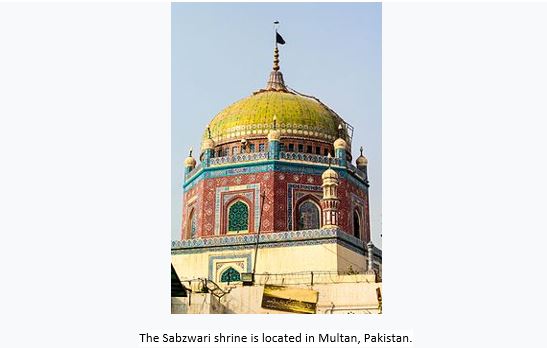
Hazrat Shah Shamsuddin Sabzwari (died 757 A.H. / 1356 C.E) was a Muslim Sufi missionary and Pir (Sufism) from Sabzawar in present-day Iran. Shamsuddin Sabzwari arrived in Multan in early 1200C.E. in modern Pakistan, established a dargah and preached Islam to the local population. Shamsuddin Sabzwari is considered to be a saint due to his poetry and the local traditions. ShamsuddinSabzwari died in 1276 and his mausoleum is located in Multan. The Urs of ShamsuddinSabzwari takes place in the month of June each year. In South Asia, he was first to receive Islam. At about the same time, the followers and well-wishers of Muhammad's family had started preaching and conversion on behalf of Ali and his successive Imams. Pir Shams conducted his missionary activities all over the Northwestern and Western parts of South Asia. Conducting his missionary work with great ardor and zeal, his activities ranged from Badakshan, through Kashmir, and from Punjab, Sindh to Gujerat with Multan as his headquarters. As he spent the better part of his later years at or around Multan, he was laid to rest there;hence, he is also famous as Pir Shams Sabzwari Multani.
The Mausoleum of Shamsuddin Sabzwari Multani Ibn Pir Sayed Salahuddin is located about half a mile to the east of the Multan Fort site, on the high bank of the old bed of the Ravi River near Aam-Khas Garden. He was born in 1200 and died in 1278 and his grandson built the shrine in 1330.
(https://en.wikipedia.org/wiki/Punjabi_Saudagaran-e-Delhi)
Muslim Khatris are originally from Hindu Khatri community of Punjab who had converted to Islam. In western districts of the Punjab (Sargodha, Multan, Mianwali, Murree, Attock, Chakwal, Rawalpindi and Gujarat,
Gujranwala), converted Khatri traders called themselves "Sheikh", and Shamsi a family title or surname which is carried on up to their current generations throughout india and Pakistan.
The Khatris who converted to Islam, continued to retain a strong social identity and are known as Shaikh, Shamsi, Soleja, and delhiwala as a family name. Qoumpunjabian, and Punjabi Saudagaran as a community name. Muslim Khatris used the word Wala with their family business for their family identity.
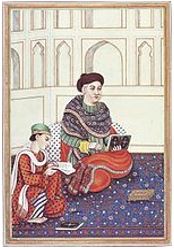
Although a large majority of Khatris are Muslims. The conversion started in 12th century. In western districts of the Punjab (Sargodha, Mianwali, Multan, Jhang,Chakwal, Rawalpindi, Eminabad and Faislabad) converted Khatri traders called themselves "Khoja". Khatris who converted to Islam continued to retain a strong social identity and are known as Punjabi Shaikh. Some time they are called "Khoja Shaikh". With the advent of Islam following conquests by Turkic tribes from Central Asia from the 11th century onwards, there were conversions of Hindus to the faith from among various Punjabi communities, including Khatris. Generally they retained their tribal and clan affiliations as has been the norm in the region.
Punjabi Saudagaran community is also of Khatri ancestry. Historically, this community lived in Delhi, and other north Indian towns, but after the independence, a lot of them moved to Pakistan. In Pakistan, also the Muslim Khatris are expanded to various occupations.
Khatris have an extensive military tradition and have excelled in the armed forces, having received many honors and gallantry awards for their services. khatri word is Punjabi version of kshatriya in Sanskrit or the warrior class. Khatri's have sometimes expanded into agriculture (these khatri's were often called Rajput).The Kshatriya was warrior ruling class.
With the advent of Islam following conquests by Turkic tribes from Central Asia from the 11th century onwards, there were conversions of Hindus to the faith from among various Punjabi communities, including Khatris. Generally, they retained their tribal and clan affiliations, as has been the norm in the region.
Kshatriya (from Sanskrit kṣatra, "rule, and authority") is one of the four Varna (social orders) of the Hindu society. The Sanskrit term kṣatriyaḥ is used in the context of Vedic society wherein members organized themselves into four classes: kshatriya, brahmin, vaishya and shudra. Traditionally, the kshatriya constituted the ruling and military elite. Their role was to protect society by fighting in wartime and governing in peacetime.
(https://en.wikipedia.org/wiki/Khatri)
History of the Punjabi Saudagran people native to the northern part of the Indian subcontinent.Due to the large number of people of Punjabi Saudagran distributed throughout the world, especially Pakistan and India, many people are increasingly experiencing the culture and becoming influenced by it. Their Culture is one of the oldest in world history, dating from ancient antiquity to the modern era. Some of the main areas of the Punjabi Saudagran culture include,desi cuisine, philosophy, poetry, artistry, music, architecture, traditions and values and history.
The cultural food of Punjabi Saudagran comes from the region of Punjab situated partially in India and Pakistan. It is based on a vast variety of delectable and exotic vegetarian and non-vegetarian dishes. One of the famous ones is NIHARI made with beef. The most popular foods are nihari, mutton qorma, kabab and Shabdaigh.
Cultural clothes includes kurta (is worn with a shalwar, pejama and jeans.)
Punjabi Saudagran people have fanatical interest in sports. Games being played in the region include cricket, hockey, swimming and football.
The Punjabi Saudagar Community has had to face many migrations - the latest of them being in 1947 at the independence of Pakistan. Being traders and businesspersons, a large number of migrants chose Karachi, the largest city, port and the business hub of Pakistan to settle down.
After migration from Sarghoda in 17th century the Community needed a platform to come together. This platform was also envisioned as one that could be used to assist the less and underprivileged of the Community in specific and everyone in general and that provide them with a better living standard. A few visionaries got together and in 1948 implemented this dream, forming an organization. Overtime, this community has spread out all over Pakistan.
The Partition of India in 1947 was a traumatic event, and a significant portion of this community had to leave India. After the independence of Pakistan, a large number of these traders migrated to Lahore and Karachi. But still many continue to live in Delhi, Kolkata (formerly Calcutta), West Bengal; and towns in western Uttar Pradesh, such as Agra, Aligarh, Meerut, Bareilly, Rampur, Kanpur; including areas within western Uttar Pradesh that now fall in state of Uttarakhand; namely Nainital and Haldwani.
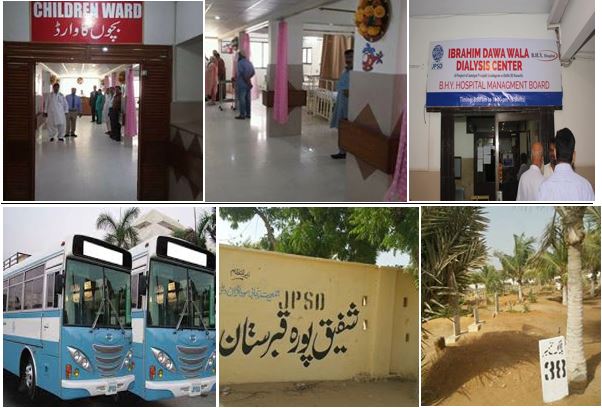
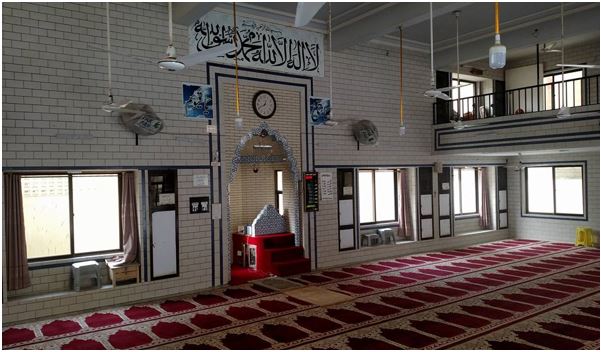
The Jamiyat Punjabi Saudagran-e-Delhi is a Community-based on Non-profit Organization. Operational since 1948, this organization exists to serve the Delhi Punjabi Saudagran Community in specific and the people of Pakistan in general. With over 6,000 members, the organization currently focuses on Financial Assistance, Health Services, Education, Housing, Graveyard service and other relevant issues of the Society.
With a budget of approximately Rs.187.5 million per year (approx. US$ 2,205.000), the JPSD benefits at over 300,000 people/families a year. All of these funds are generated solely through donations.
(http://jpsd.org.pk/)
They have a Jamiyat Punjabi Saudagaran-e-Dehli Maiyat Bus Service. They have their own graveyards for their Community known as "Yousuf Pura", "Shams Pura", "BaghNawab Uddin" and "Shafiq Pura" at Karachi. They also provide a Ghusal e Maiyat Service.
List of institutions under:
Baigum Haji Hospital, MarriumBatla Hospital, Bilqees Memorial Hospital, Haji FazalIlahi General Hospital, Ismail Allahwala Boys Campus, Najam Girls School, Alamgir Road, YahyaSootwalay Hospital, JamiyatSabira Clinic and Diabetic Centre, M.Y. Chandiwala Clinic, Abdul Khaliq Abdul Razzaq Hospital, B.H.Y.Hospital. Abdul Khaliq Allah wala town.
The Jamiyat also gives monthly pension, houses, daily household things to widows, unmarried, orphans and other poor people of their Community.
The conspiracy about the registration of Jamiyat Punjabi Saudagaran-E-Dehli, as they mentioned on their web pages and Wikipedia might be resolved, as there was the first registered organization was ANJUMAN-I-WAKIL QAUM PUNJABIAN, which was registered in 1906 by the Punjabi Saudagran Community.
Dhaka is the capital and one of the oldest cities of Bangladesh.Shamsi Welfare Society, Dhaka was founded in the Year 1954. The Founders of the Society were:
Shamsi Welfare Society, established at Liagat Housing Society in 1964, spread over a huge area in Mohammedpur Dhaka. Mohammadpur is a Thana of Dhaka District in the division of Dhaka, Bangladesh.But, unfortunately after 1971 the land/society was taken over by the Govt. As Biradari members were in disarray. Now Geneva Bihari Camp is established on the Land, and SWS is fighting in Courts to reclaim the land.Shamsi Welfare Society has established ShamsiSchool; in Midfort area of Dhaka, but it was closed after 1971.
Presently SWS is doing a Leading Job in Housing to settle the most marginalized people of the Community. Many buildings are built for the same purpose and handed over to community members in very easy installments. All projects of SWS are based on no profit no loss and they also have many similar projects just to support the community health, education and housing sector.
President:Shiekh Nasim Bin Afsar
Cell Phone: +8801713016550
General Secretary: ShiekhMuzaffar Sultan (Humayun)
Cell Phone: +8801713089666
Kolkata also known as Calcutta is the capital of the Indian state of West Bengal.Shamsi Welfare Society,Calcutta was established in 1953, and located at 27/1Debendra Mallik Street, Kolkata-700073.
Phone No# +918100177887/+917044988861/+919748428894
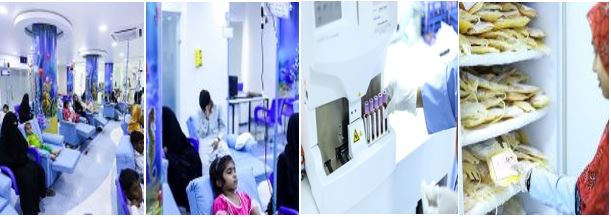

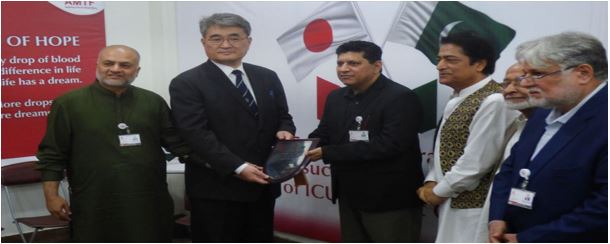
Afzaal Memorial Thalassemia Foundation (AMTF) started with modest meager means in November 2003. Afzal Memorial Thalassemia Centre providing leading edge advanced personalized thalassemia care. During the 2011-12 phases, they established five beds first Intensive Care Unit (ICU) for the thalassemia patients in this region. This state of the art set up and unique of its kind was established with the generous support of Government of Japan. They started Hematology Clinic, Heart Care Clinic, Eye Care Clinic, Neurology Clinic and Clinical Psychology Service for their patients. All efforts focused to develop multi- disciplinary team for blood disorders. The registered patients reached 500. In 2013, they have more than 600 registered patients. Day Care area has now 18 transfusions capacity in each shift; their day care remained open its services even on Sunday.
Their Clinical services include; Pediatrics OPD Clinics, ER Services, ICU Services, Day Care Services, Hematology Clinic (Hb disorders, Platelet disorders, Aplastic anemia), Heart Clinic, Eye Clinic, Neurology Clinic, Psychology Clinic, Orthopedics Referral, OPD Services, Echocardiogram & other U/S Services, Laboratory, Diagnostics, Research Cell, Education and Training, Family Psychology Clinic, Pharmacy Services.
AMTF, provides a broad range of the latest technically advanced diagnostic and therapeutic services, they are also providing dialysis treatment. Over the years, the hospital has developed a health care network which covers all areas of Karachi through off-site Medical Centers, home health services and Clinical Laboratory Network, which includes; Laboratory, Radiology, Ultrasound, Echocardiography.
Address: ST-1C, Block-10, Ground Floor,
Ayesha Manzil, F.B. Area Karachi-Pakistan.
Web:https://afzaalfoundation.org/
Contact # +92-321-3784538 | +92-21-36365641 | +92-21-36366452
It has been two decades, since Alamgir Welfare Trust Int’l is serving the indigent and underprivileged humanity for the betterment of the society. Established by Shaheed Anwer Naseem Chandna, a renowned businessperson.He focused on health and food of poor people, therefore in 1994 he founded the Alamgir Trust to institutionalize philanthropic work and to provide free of cost medicines and medical care to the poor.Today with more than 600 Million Rupees, the trust is helping the poor and needy in almost every field of life, of them health and education being the most important.
They are rendering free of cost services to humanity, the organization is extending the domain of its services day by day.Alamgir welfare trust has a vision of making Pakistan a great country to live in, where even person has means to feed his family, kids has a right to education, every patient has resources to get treatment.
Alamgir Welfare Trust is extending the domain of its services. The service they are providing include; medical aid, educational assistance, marriage of orphan girls, cooked food distribution, ratio provision, ramzan services, sadaqa/aqeeqa services, joint Qurbani, Hajj and Umrah services, construction of Mosque, water projects, emergency medical equipment, Funeral services, night time services, rescue centers, mergency relief, old stuff and capital office.
Head office Address: Alamgir Masjid, Alamgir Road, Bahadurabad, Karachi
www.alamgirwelfaretrust.com.pk
Phone: +92 (21) 111-153-153, +92 (21) 34852055-60 (6 Lines)
Capital Office Address: 307, Sector G-10/1, Sawan Road Islamabad.
Phone: +92 (51) 111-153-153
Jamiat Talimul Quran offers basic Qaida learning, Nazra Quran learning, Quran Hifz memorization. They are the largest Quran Teachers Certified Training Institute in Pakistan. Over 2600 Quranic School all over Pakistan are run by JamiattalimUl Quran. Untilnow, they have trained thousands of male and females who are successfully teaching Nazra and Hifz Quran allover Pakistan. Their teachers are well recognized all over the world for their tajweed, reciting Quran and education style. They also conduct Refresher Courses for teachers after every 6 years to ensure they are well updated with parent organization. Their male and female teachers are polite, friendly and well aware of how to involve with child so he or she finds online Quran reading class with full interest and devotion.
Orphan, Poor and homeless children residing and studying at Jamia Bait ul Quran Malir in different classes. To mention Nazra & HifzQaaida / Quran, Primary to Matric School education, English Language and Computer courses, they are committed to provide them excellent facilities and environment of learning that are possible in other quality school. Their vision is to make these children beneficial and law-abiding citizen of Pakistan.
You are always welcome to visit JamiaBaitul Quran in shamsi society malir to witness and motivate these children.
Contact us at 021-34932283 or 0213 4935824 to schedule your visit today.
Address: Inside Alamgir Masjid, Alamgir Road, Bahadurabad, Karachi Pakistan.
Phone: + 92 21 3493 5824 / + 92 21 3493 2289
Regional Office: A-5, Commercial Plaza, 2nd Floor (Faisal Bank)
Izmir Town, Canal Bank Road, Lahore Pakistan
Phone: 042-35961830 / 042-35961730
The main goal of this program is,
Address: SUITE# SA-34&35, 2nd Floor, Shahnaz Arcade,Plot# 158,Shaheed-e-Millat Road, B.H.J.C.H.S Karachi, Pakistan.
Phone: 0322-2100005
(https://saudagran-edu.org/)
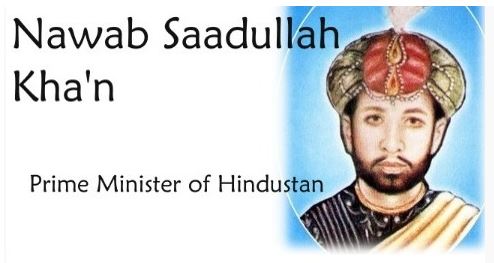
NAME : Mulla Saadullah Khan
FATHER NAME : Ameer Bakhsh
PEN NAME : Nawab Saadullah Kha'n
DOB : 1906
DOD : 7 April 1956
PLACE OF BIRTH : Chiniot
PROFESSION : President Of Hindustan (in the region of Shah Jahan)
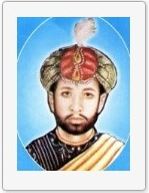
Iqbal Ahmed bin Yousuf Bin Siraj uddin bin Fazal e Elahi juty waly bin Faiz Bukhch bin izat Bukhsh bin Amir Muhammad bin Yar Md bin SAADULLAH KHAN BATOUNNY PM INDIA IN 1535 ad.
Dr. Tahir Shamsi was born on 18th of Feb 1962. He has professional membership of Pakistan Society for Hematology (member, executive council), Pakistan Society of Clinical Oncology, Asian-Pacific Bone Marrow Transplant Group (member, scientific committee), Center for International Blood & Marrow Transplant Registry, Pakistan Pediatric Association, Pakistan Society of Physicians, Pakistan Association of Pathologists, and American Society of Hematology. He is doing community work as General Secretariat NIBD welfare society.
Prof. Dr. Tahir Shamsi has over 43 research publications in international journals, 07 books written or edited, published and circulated internationally. He is also the Editor of many hematology journals. His research interests include stem cell biology, hemostasis and novel therapeutics in hematology and oncology. He is the fellow of the Royal College of Pathologists, UK. He is the medical director, consultant hematologist& transplant physician at the National Institute of Blood Diseases & Bone Marrow Transplantation (NIBD and BMT). He is also the director of stem cell program at NIBD & BMT. He is the Adjunct Professor at Liaquat University of Medical and Health Sciences, Jamshoro and Dow University of Health Sciences, Karachi.
Some of his achievements are Recipient of “President of Pakistan Certificate of Appreciation” Award 2019, Recipient of Government of Punjab Shield of Accomplishment of BMT Project in Lahore, 2019, Recipient of DOGANA "Life Time Achievement Award" for 2016, Recipient of “Excellence Award In Recognition for Caring and Supporting Patient” 2015, Recipient of Gold Medal for Excellence in Oncology in 2003.
(https://iccs.edu/uploads/files/Dr_Tahir_Shamsi_attachment_1.pdf)
Born in Delhi and educated in Lahore (Government College, Lahore) and Karachi (Sindh Muslim College) passed his B.A. (1961) and LL.B. (1963) from the University of Karachi. Thereafter, obtained his LL.M. Degree from the University of Pennsylvania in 1967; the Subject of his Thesis being "Principles of Boundary Making in International Law".He was former Judge of High Court of Sindh (October 1997 – December 2003).Justice Sarwana supervises all work involving high stakes.
S. Ahmed Sarwana, Senior Counsel, Founding Partner (formerly) graduated from the University of Pennsylvania, USA and is a Former Judge of the High Court of Sindh (Court of Appeals). He conducted trials under the Special Original Jurisdiction of the High Court (Admiralty, Banking, Commercial and Company Law cases) and decided appeals against the judgments of the District Courts including convictions and bails in criminal matters and judgments and orders passed by Single Judges of the High Court under the Special Original Jurisdiction, Orders passed under Special Laws (Customs, Patent and Trade Marks, Winding Up, Mergers and Acquisitions, Taxations etc.) and Writ Petitions (Judicial Review of Administrative Actions).
Address: Advocates, Solicitors, PIDC House, Mezzanine Floor, Dr. Ziauddin Road, Karachi 75530.
(https://www.shc.gov.pk/Justice_Ahmed_Sarwana.php)
Justice Tanzil-ur-Rahman was born on 16 June 1928 at Nagina, District Bijnor, U.P. India. In 1948, he graduated from Agra University and migrated to Pakistan. He completed his M.A. (1952), LL.B. (1954), and Ph.D. in Islamic Law (1971) from Karachi University. He was awarded Tamgah-i-Imtiaz in 1971 by the Government of Pakistan for his contribution to Islamic Law.
Honorable Justice (R) Dr. Tanzil-ur-Rahman, Tamgha-e-Imtiaz, is a prominent Pakistani jurist and scholar of Islamic studies. He was the Chief Justice of the Federal Shariat Court (1990–92), member of the Islamic Research Council and the Council of Islamic Ideology (1980–84). He is the author of numerous books on the codification of Islamic law.
He has been called an "enthusiastic and skilful champion" of advancing the cause of "Islamic reform" of Pakistani law, i.e. interpreting the Pakistani constitution and law to implement Sharia law in Pakistan.
(https://en.wikipedia.org/wiki/Tanzil-ur-Rahman)
Dr. Shahid Sami has the following degrees: MBBS, FRCS (Cardio-thoracic), CCST (U.K). Dr Sami has worked as a consultant cardiac surgeon at the Wessex Cardiothoracic Center Southampton General Hospital, UK. His specialization is cardiothoracic surgery and his research interests are coronary surgery, surgical complications from myocardial infarction and aortic surgery. He is a member of the European Association of Cardiothoracic Surgeons and the Pakistan Association of Cardiothoracic vascular and Thoracic Surgery. Dr. Shahid Sami has 37 years of experience.
Pakistan Civil Award has been presented to Dr Shahid Sami by the Sindh Governor Imran Ismail at a ceremony at the Governor’s House in Karachi. He is among 127 Pakistani and foreign nationals to receive the award conferred every year on March 23, Pakistan Day. The Sitara-e-Imtiaz was conferred on Dr Shahid Sami, a senior lecturer in AKU’s department of surgery and a consultant cardiothoracic surgeon at Aga Khan University Hospital, Karachi.Dr Sami joined the University after completing his postgraduate training in the UK. Besides bringing back the expertise to perform complex cardiac operations to Pakistan, he also established teaching and training programmes that have honed the skills of the current generation of surgeons, nurses, technicians and perfusionists.
“I joined AKUH with the aim to provide high quality healthcare to cardiac patients,” said Dr Sami. “This award is a testament to this dream that the institution helped me realise.”
Dr Sami also serves as the vice-president of the Pakistan Society of Cardiovascular and Thoracic Surgeons and contributes to national and international societies of cardiothoracic surgeons, which work on enhancing and introducing cardiac surgery programmes within and outside Pakistan.
Dr. Atif Bilal is the Assistant Professor (January-2014-up until now) of Management Sciences and Program Manager of EMBA, PMBA and M-HRM programs at SZABIST, Islamabad Campus. He did his PhD in Management Sciences from Bahria University, Islamabad. His research work includes bureaucracy, creativity and innovation in the advertising agencies of Pakistan.
His current major research interests include the psychology of employees at work, consumer behavior, organizational structure, creativity, innovation, workplace violence, leadership and advertising. He has published a number of articles in these fields in renowned journals. He has done MS (L.L.B.) from Punjab University, Lahore, MBA from Bahria University, Islamabad. MS (MS-HRM) from Superior University, Lahore and PhD (PhD management science) from Bahria University, Islamabad.
His publications include, Bilal, A. (2014); Bilal, A., & Ahmad, H. M. (2015); Bilal, A., & Ahmed, H. M. (2017); Bilal, A., & Mahmood, Z. (2014); Bilal, A., & Majid, F. (2014); Bilal, A., Ahmad, H. M., & Majid, F. (2016); Bilal, A., Ahmad, H. M., Zeb, S., & Majid, F. (2015); Bilal, A., Khan, F., Ahmad, H. M., & Saeed, M. A. (2017); Imran, M., Kureshi, N., Zaheer, N., & Bilal, A. (2016); Laeeq, H., & Bilal, A. (2018) and Laeeque, S. H., Bilal, A., Babar, S., Khan, Z., &Ul Rahman, S. (2017).
Dr. Atif Bilal has honored best researcher award by BahriaUniversity, Islamabad in 2017 and best University teacher award by Higher Education Commission, Pakistan in Jan-2016.
Dr. Syed Sheeraz Ur Rahman is a General Surgeon practicing in Karachi. Dr. Syed Sheeraz Ur Rahman has the following degrees: MBBS, FCPS, MRCS. His area of expertise includes Hepatobiliary surgery, colorectal surgery, Hammeroid, Fissure fistula, Breast surgery, Bariatric Surgery. He is currently working at Liaquat National Hospital & Medical.
S. M. Toufiqhas served as mayor Karachi from 14th June, 1958 till 14th Oct 1958.
Dr.Jawwad Ahmed Shamsi was born on 1st September 1962. He did MBBS from Khyber Medical College, Peshawar, Khyber Pakhtunkhwa, Pakistan (1980-1986) and MSc (by research) Department of Microbiology, University of Leeds, Leeds, UK.
Title of thesis (1993-1994). PhD, Department of Microbiology, University of Leeds, Leeds, UK (1994-1998). FCPP – Fellow College of Pathologists, Pakistan (honorary) in 2010.
Dr. Jawwad Ahmed Shamsi is the Director and Professor at FAST-National University of Computer and Emerging Sciences. Dr. Jawwad Ahmed Shamsi did PhD (Computer Science) from Wayne State University, United States (2009), M.S(Computer System), University of Michigan, United States (2002), B.E(Electrical), NED University of Engineering And Technology (NED UET), Karachi, Pakistan (1998).
Dr. Tariq Farman is a trained Interventional Cardiologist and practicing for the last 12 years. He completed his training in Cardiology from NICVD in 2007. Later he joined NICVD for the fellow ship of Interventional Cardiology & completed his training in 2009.
He got the fellowship of Society of Coronary Angiography & Interventions ( SCAI) USA in 2010 & Fellowship of European Society of Cardiology in 2017. He is the life time member of Pakistan Cardiac Society.
Dr. Tariq has the special interest in Research & Training with more than 200 Research Papers. Currently he is working in Medicare & at Dow University of Health Sciences as a Deputy Director of Dow Institute of Cardiology.
Copyright © Anjuman Punjabi Saudagran
Website Donated By Shamsi Educational Foundation